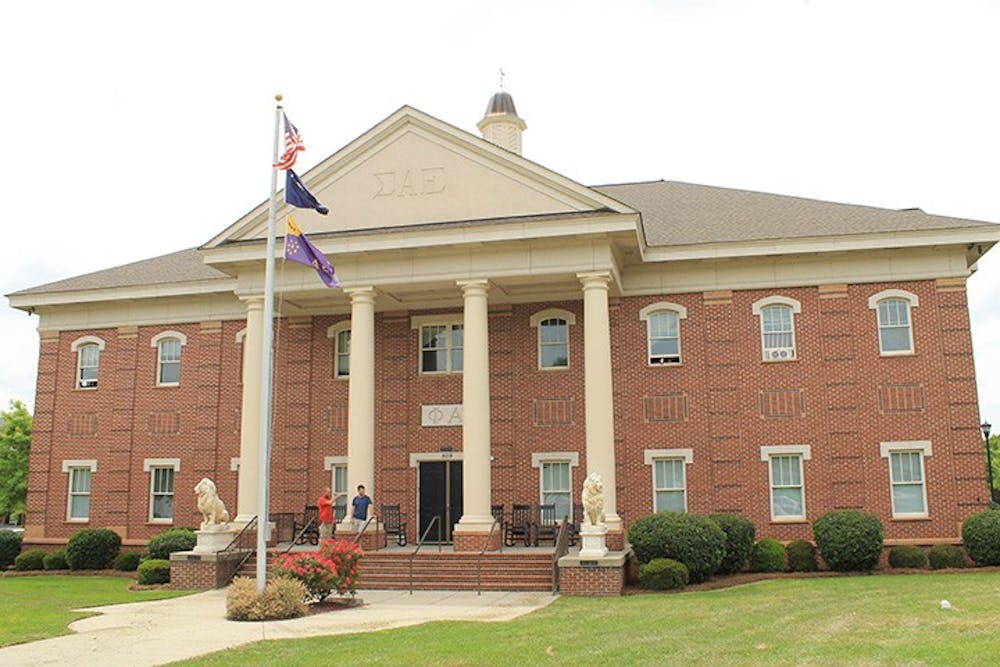University plans for Greek Village expansion, timeline remains up in the air
With 20 houses and some chapters expanding to upwards of 380 members, students and university officials agree it is time for expansion in Greek Village.
In recent years, Greek life numbers increased at an exponential rate. Multiple fraternities and sororities have already requested new housing, and the demand for space is increasing as Fraternity Council and Sorority Council approve organizations to colonize on
“The only way you can reduce [membership] is to have more groups. To have more groups, you have to have more housing,” said Jerry Brewer, associate vice president of student affairs and academic support. “If individuals are going to be successful, they need a house.”
A location on Blossom Street was identified as a potential spot for expansion, which could accommodate four or five new houses, according to the University of South Carolina Greek Village expansion plan. Brewer said the university is in the process of obtaining land for the expansion, and USC is considering adding up to six new houses.
There is not currently a timeline for the project. Brewer said recruitment numbers reveal the necessity of the project, but the process still requires time.
Andrew Stewart, president of Fraternity Council, said he hopes the project will be finished within five years, since he thinks the university will reach its threshold for Greek life around that time.
The project has yet to be presented to the Board of Trustees, but the general concept is included in the university's housing master plan. Right now, USC is in the stage of general conversations and deciding between several different possible locations.
Individual chapters provide all funding for the houses, which makes it cheaper for the university.
“It’s a wonderful financial way of adding housing to campus because basically between the national organization and the alumni of the groups, they fund the construction,” Brewer said. “The university just needs to provide land and infrastructure.”
When a fraternity or sorority organization decides it wants to build a new house, current and former members will contract an architect and raise the funds. Once the organization picks a builder, the architect is reviewed based on university requirements.
The Fraternity and Sorority Council is currently accepting applications for new housing, and several organizations have submitted applications and started fundraising for the almost $300,000 down payment.
Even when the funds are collected, Brewer said the project is challenging undertaking — the original Greek Village, constructed in 2002, has set a high bar.
“We were so successful with Greek Village [No. 1]. It turned out so well, functionally and aesthetically. We had other schools coming to visit and modeling their Greek Village after ours,” Brewer said. “That’s very good, but when you try to do Greek Village [No. 2], that’s a challenge.”

